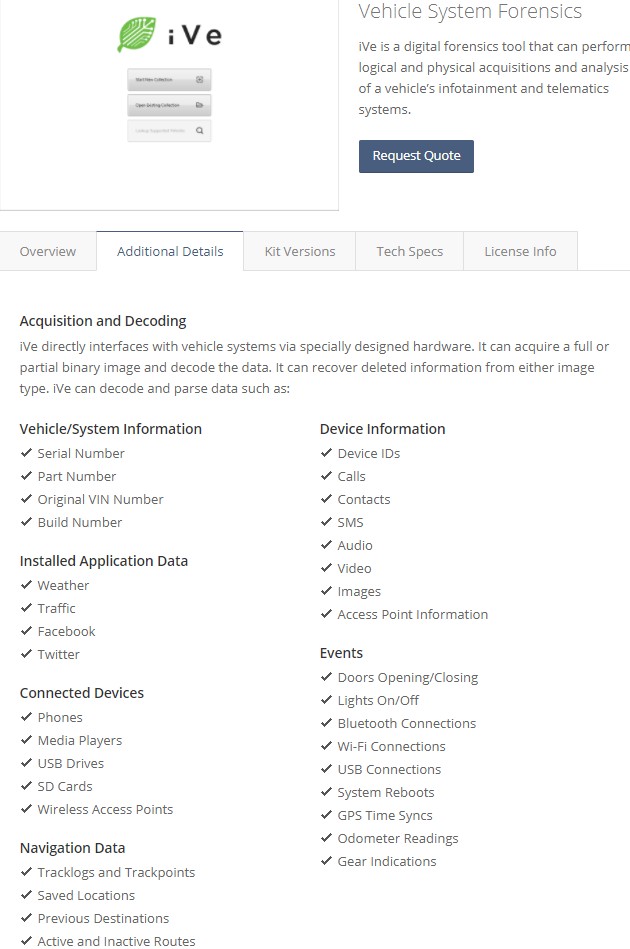The 2015 Charlie Hebdo attack in Paris marked a turning point in the use of vehicle forensics in terrorism investigations. French authorities, seeking crucial evidence, turned to Berla.co, a Maryland-based cybersecurity firm specializing in vehicle data extraction. Berla’s Project iVe, a groundbreaking forensic tool, played a key role in accessing data from the attackers’ Citroën C3 vehicles.
Berla.co’s Project iVe: A Deep Dive into Vehicle Data
Project iVe, developed by berla.co, allows investigators to delve into a vehicle’s intricate data systems. This includes not only data generated by the car itself, like GPS location and door activity, but also information from connected devices. Think SMS messages, contact lists, emails, and social media feeds—a treasure trove of potential evidence often carelessly exposed through phone connections.

While berla.co maintains a low profile, its contributions to major terrorism investigations are significant. The company’s CEO, Ben LeMere, confirmed their involvement in cases ranging from the Paris bombing to the San Bernardino attack. Berla’s expertise proved invaluable in scenarios where traditional methods, like accessing locked smartphones, faced obstacles.
The Expanding World of Vehicle Forensics
The field of vehicle forensics is experiencing exponential growth, mirroring the increasing reliance on data-rich vehicles. Modern cars, equipped with nearly 100 computers on average, generate massive amounts of data—25 gigabytes per hour in the U.S. alone. This translates to approximately 20 terabytes of data per person annually.
Berla.co’s Project iVe has evolved alongside this trend. Initially supporting 80 car models in 2013, it now boasts access to over 6,730 globally, including major manufacturers like BMW, Ford, General Motors, and Volkswagen.
Berla.co and DHS: A Collaborative Approach to Vehicle Security
berla.co works closely with the Department of Homeland Security (DHS), receiving funding and collaborating on the development of iVe. A dedicated steering committee, comprising representatives from various law enforcement agencies, guides the technology’s advancement. Furthermore, berla.co partners with car manufacturers, providing security consulting in exchange for guaranteed law enforcement access to vehicle data. This proactive approach ensures that vital information remains accessible for investigations, even as privacy and security concerns surrounding vehicle data escalate.
The Future of Vehicle Data and Privacy
As public awareness of data collection by vehicles grows, debates surrounding privacy, security, and access are inevitable. The sheer volume of data at stake—a “titanic” amount, as experts suggest—will fuel these discussions. berla.co’s work highlights the delicate balance between leveraging valuable data for law enforcement purposes and safeguarding individual privacy rights. This ongoing tension will continue to shape the future of vehicle technology and data security.


